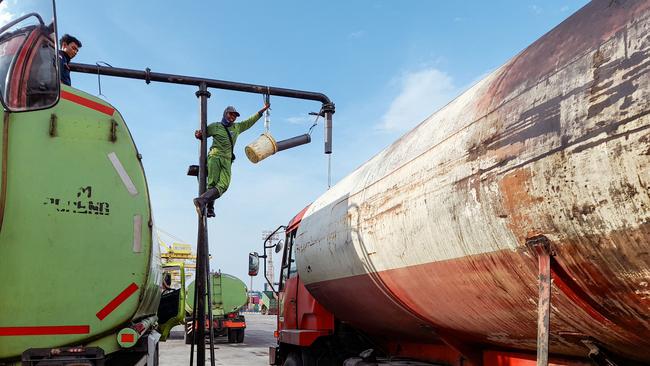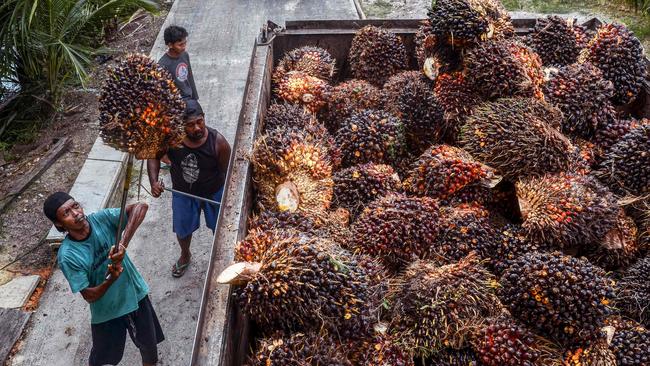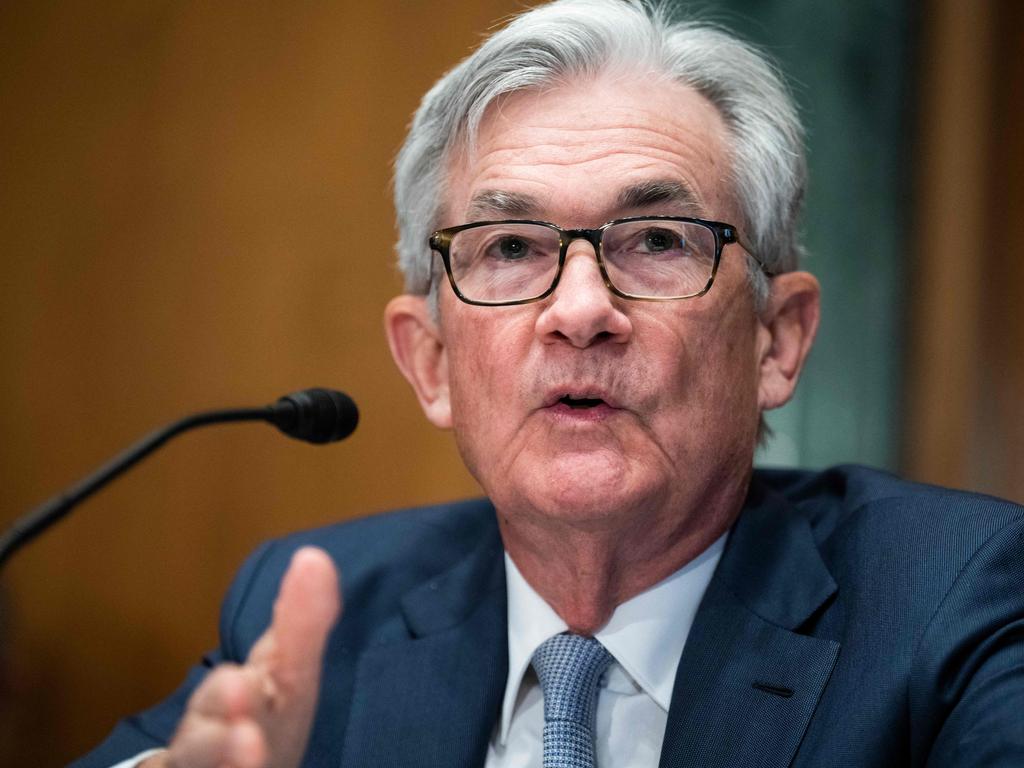Worst is yet to come for supply chain crisis: Rabobank

Sitting in Singapore, Rabobank’s global chief strategist financial markets Michael Every says the world faces a perfect storm.
Trade is about politics not balance sheets, the US has weaponised its currency, a lack of trust means countries keep their resources rather than sell to others and inflation is building.
“There is not a business that isn’t going to be affected by this one way or another,” he says.
Every says the palm oil export ban has thrown the global edible oil market into chaos and there is no chance of Ukrainian oil coming back on line until the war is resolved. Some Western supermarkets have moved to rationing.
“You already had a massive shortfall of sunflower oil with anecdotal stories of fish and chip shops saying we can’t afford to fry, it is ridiculously expensive,” he says.
In Asia palm oil is a substitute for sunflower oil going into almost anything which is processed. Alternatives are limited and create other problems. Using soya oil would push up the price of soya beans that are fed to animals. This in turn pushes up meat prices.
The sudden edible oil shortage fuels food inflation across the Western world.
“If you eat a bar of chocolate it’s got palm oil in it, biscuits, just about whatever you eat that is processed has palm oil in it at some stage. And even if you are not using it, there will be a bid up on the price that is an alternative,” Every says.
His team was quite a Cassandra on the impending war in Ukraine. “A month and a week beforehand we put out notes to say the market is underplaying this and we are really worried. Here is the manner of invasion and what we think it will do to commodity prices.”
He says what people cannot see now is how war, politics and sanctions are eroding the foundations of everything the West takes for granted. Under threat is a global system built around countries specialising in one good or another and earning US dollars through exporting, which they bank as their trading currency.“Now you have exporters that say they are not going to export food any more,” he says. “And the US says all your dollar reserves are frozen because we don’t like your government. The risk is that a country’s savings can be turned off by the US. You politicise and weaponise what is supposed to be the neutral currency of international trade. That’s already happened.”

He says China is aware of the risk to some of its own US dollar reserves.
Even if a country wants to hold dollars, Every says vital resources are not there.
“Let’s say you wanted to buy wheat. You can’t buy wheat now. Let’s say you wanted to buy sunflower oil. There isn’t any available. Okay, I want to buy palm oil. None for sale. So the whole system starts to break down and each country says let us produce a bit less of what we are doing and grow a bit more food.”
Rabobank’s expertise is geared to commodity supply chains. Based in the Netherlands the cooperative bank has international operations focusing on finance and rural business.
Rabo’s global strategist is well known in financial markets for his refreshingly straight talking.
Every says it is one thing for North Africa to grow less alfalfa and blueberries for Europe and in favour of wheat. But home growing at scale could collapse the system. “If you don’t have dollars as the international lubricant to keep the gears turning, how do you trade? You go back to barter.”
One scenario he shoots down is that the Russian rouble or the Chinese renminbi replaces the US dollar. In the end, Every says the world will stick with the US dollar rather than the chaos of no currency. But trade will continue to be politicised, as it has been between China and Australia.
“No one looks at anyone like they did five years ago. Everyone is thinking, can I rely on you? Are you going to sell it to me when I need it? Are you going to buy it from me when you say you will? Maybe I’m better off keeping it myself than selling it to you. Everyone is starting to look at international trade as if they were rivals or competitors rather than partners,” he says.
Anyone who thinks the world is over the worst on supply chains is wrong, according to the chief strategist.
Every likens the supply chain system to the human body: a complex system which can be pushed in all sorts of different directions but if certain forces or intervention is applied, it dies straight away rather than adapting and healing.
China’s Covid lockdown has hit the economy badly, particularly at the country’s ports. In a research note Rabobank predicts another slump in shipments to the US and Europe which industry experts call “staggering” in scale.
Michael Every can see China using its authoritarian power to switch lockdowns on and off against other economies if it felt threatened. “If the US started to introduce legislation China did not like, China could lock down again just to show the US your stuff won’t turn up next week as a result.”
In the meantime China’s internal misery grinds on with the Covid outbreak reportedly worsening despite a zero-tolerance policy and talk that a lockdown could extend to Beijing.
Chinese lockdowns put more upward pressure on global inflation. It is something the RBA will note along with Australia’s inflation read on Wednesday as the board mulls whether to wait until after the election for a first rate hike since November 2010.







On Friday Indonesia, the world’s largest producer of palm oil, cancelled all exports from April 28 until further notice. The shock announcement happens just as Ukraine’s supply of sunflower oil – making up almost half world exports – is off the market.